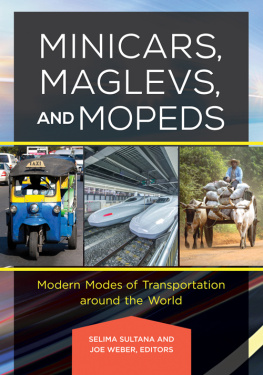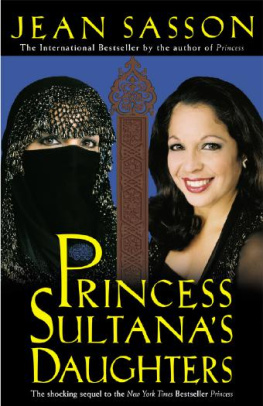
Towards a Southern Approach to Sex Work
This book delves into this almost unchartered territory, documenting the lived experiences of sex workers in Bangladesh, considering the complex realities of their day-to-day lives and the ways they negotiate their working conditions and relationships. Despite being the most common form of female deviance and criminality globally, we know very little about sex work in Asia and the global South. Drawing on feminist frameworks, it shows that the experiences of sex workers vary widely depending on the ways they enter the sex trade, their modes of operation, and relationships with significant others.
Towards a Southern Approach to Sex Work contributes to feminist scholarship on sex work, by offering a much needed Southern perspective, drawing on culturally specific data. It argues that the lived experience of sex workers comprises both victimhood and agency, deception and resilience, and that it is the management of these relationships that enable sex works to avoid social marginalization and alienation.
An accessible and compelling read, this will appeal to students and scholars of criminology, sociology, gender studies, south Asian studies, cultural studies, social theory, and policy makers. In addition, it will engage all those interested in learning more about how the sex trade operates in Bangladesh.
Habiba Sultana is Associate Professor at Jagannath University, Bangladesh, where she has been teaching since 2009. Her research focuses on sex work, HIV, AIDS, Sustainable Development, Injecting Drug Use, Caste, Social Stratification, and Globalization. Sultana holds a PhD from the Queensland University of Technology, Brisbane, Australia, and a master's degree in Public Policy from the Lee Kuan Yew School of Public Policy, National University of Singapore. She has published articles on the subject of sex work, HIV, and caste system in Bangladesh.
Routledge Studies in Crime and Justice in Asia and the Global South
Crime and justice studies, as with much social science, has concentrated mainly on problems in the metropolitan centres of the Global North, while Asia and the Global South have remained largely invisible in criminological thinking. This research series aims to redress this imbalance by showcasing exciting new ways of thinking and doing crime and justice research from the global periphery.
Bringing together scholarly work from a range of disciplines, from criminology, law, and sociology to psychology, cultural geography and comparative social sciences, this series offers grounded empirical research and fresh theoretical approaches and cover a range of pressing topics, including international corruption, drug use, environmental issues, sex work, organized crime, innovative models of justice, and punishment and penology.
Edited by Wing Hong Chui, City University of Hong Kong
Russell Hogg, Queensland University of Technology
John Scott, Queensland University of Technology
Mapping Security in the Pacific
A Focus on Context, Gender and Organisational Culture
Sara N. Amin and Danielle Watson and Christian Girard
For more information about this series, please visit: https://www.routledge.com/criminology/series/RSCJAGS
First published 2021
by Routledge
2 Park Square, Milton Park, Abingdon, Oxon OX14 4RN
and by Routledge
52 Vanderbilt Avenue, New York, NY 10017
Routledge is an imprint of the Taylor & Francis Group, an informa business
2021 Habiba Sultana
The right of Habiba Sultana to be identified as author of this work has been asserted by her in accordance with sections 77 and 78 of the Copyright, Designs and Patents Act 1988.
All rights reserved. No part of this book may be reprinted or reproduced or utilised in any form or by any electronic, mechanical, or other means, now known or hereafter invented, including photocopying and recording, or in any information storage or retrieval system, without permission in writing from the publishers.
Trademark notice: Product or corporate names may be trademarks or registered trademarks, and are used only for identification and explanation without intent to infringe.
British Library Cataloguing-in-Publication Data
A catalogue record for this book is available from the British Library
Library of Congress Cataloging-in-Publication Data
Names: Sultana, Habiba, author.
Title: Towards a southern approach to sex work : lived experience and resilience in a Bangladeshi brothel / Habiba Sultana.
Description: Abingdon, Oxon ; New York, NY : Routledge, 2021. |
Subjects: LCSH: Prostitutes--Bangladesh. | Sex workers--Bangladesh. | Brothels--Bangladesh.
Classification: LCC HQ240.6.A5 S95 2021 | DDC 306.74095492--dc23
LC record available at https://lccn.loc.gov/2020038177
ISBN: 978-0-367-35935-5 (hbk)
ISBN: 978-0-429-34270-7 (ebk)
Typeset in Bembo
by KnowledgeWorks Global Ltd.
In memory of Shah Abdul Hai, my abba (father). You might be smiling at me from above. A stone is off my chest, having written this book for you.
And for Anowara Banu, my amma (mother), with love and prayers for your good health.
Contents
- List of figures
- Status of women and sex workers in Bangladesh
- Feminism and sex work
- Global sex work: The North and the South
- Entry and modes of sex work
- Work and pleasure
- Mothers and daughters
- Risk and violence
- Conclusion
- Half Title
- List of figures
- 2 Status of women and sex workers in Bangladesh
- 3 Feminism and sex work
- 4 Global sex work: The North and the South
- 5 Entry and modes of sex work
- 6 Work and pleasure
- 7 Mothers and daughters
- 8 Risk and violence
- 9 Conclusion
Globalization has resulted in broad changes to the structure and organization of industries. Technology, ideology, economy, and demography produce change in the global sex industry. Recent years have seen the sex industry transform in the global North with increasing numbers of sex workers moving online as escorts, with higher visibility of male sex workers and an emerging market of female clients. And yet, with all this change, which has transformed the structure and organization of the sex industry, regulatory regimes have been resistant to change, along with the ideologies from which they draw support.
I was initially attracted to the social sciences by their ability to unpack ideologies and question common-sense truths. However, the social sciences have also had a significant role in the development of ideologies and myth. Through such processes, the social sciences have also participated in Othering and what Foucault termed dividing practices. Foucault also noted the link of such practices to the generation knowledge and, with it, power. In particular, he questioned one of the foundational myths of the Enlightenment; this being the idea that so-called scientific knowledge generated social progress.









